Are you on the lookout for a heartfelt recommendation letter for a speech therapist? Writing such a letter can make a significant difference in someone's journey to effective communication. In this article, we'll guide you through crafting a compelling recommendation that showcases the therapist's skills and impact. So, grab a cup of coffee and read on to discover the essential elements you need to include!
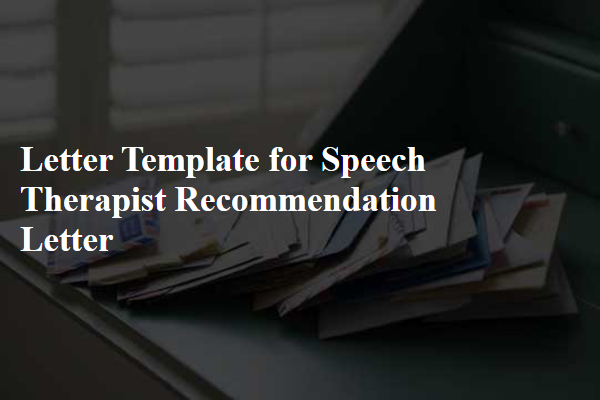
Professional Qualifications and Experience
A highly qualified speech therapist possesses extensive credentials and experience in the field of communication disorders. Many hold advanced degrees such as a Master's in Speech-Language Pathology from accredited institutions, ensuring deep knowledge of therapeutic techniques (e.g., articulation therapy, fluency interventions). Certification by the American Speech-Language-Hearing Association (ASHA) marks proficiency and adherence to clinical standards. Frequently, these professionals engage in continuing education, attending workshops and conferences (e.g., ASHA Annual Convention) to stay updated on the latest research and innovative practices. Practicing in diverse settings, including schools, rehabilitation centers, and private practices, they offer tailored assessments and interventions to clients of all ages, from children with speech delays to adults recovering from strokes. Their ability to create individualized treatment plans and foster effective communication strategies ensures significant progress in clients' speech and language capabilities.
Specific Skills and Expertise
Highly skilled speech therapists possess a diverse set of expertise, with notable proficiency in areas such as articulation, fluency, and language development. Articulation involves the ability to produce sounds correctly, crucial for children struggling with speech clarity, while fluency refers to the smoothness of speech, crucial for those with stuttering issues. Language development encompasses both expressive language, the ability to convey thoughts, and receptive language, the ability to understand communication from others. Specific therapeutic strategies may include evidence-based techniques like the Lidcombe Program for stuttering or the Hanen Approach for enhancing interaction skills. Therapists often work in specialized settings such as schools, clinics, or hospitals, where they tailor interventions to meet the unique needs of clients across varied age groups, including preschool children and adults recovering from strokes. Continued education and training in state-of-the-art methodologies, assessments, and technology further augment their capability to foster effective communication skills.
Impact on Clients and Outcomes
A qualified speech therapist significantly influences clients' communication abilities and overall quality of life. Through individualized assessment techniques, such as standardized tests and observational methods, the therapist identifies specific speech and language deficits. For instance, children with speech sound disorders, like articulation issues, typically see marked improvement with targeted interventions over an 8-12 week period. Adult clients recovering from strokes often benefit from evidence-based therapies, leading to enhanced daily functional communication within just a few sessions. The therapist's expertise in employing various approaches, including augmentative and alternative communication (AAC) devices in cases of severe speech impairment, can dramatically alter the client's ability to interact socially. This skilled professional fosters not only improved speech clarity but also greater confidence and emotional well-being among clients, contributing significantly to their social integration and overall satisfaction.
Communication and Interpersonal Skills
Effective communication skills are essential in fostering successful interactions, especially within therapeutic settings. Speech therapists, such as those at the American Speech-Language-Hearing Association (ASHA), often demonstrate exceptional interpersonal skills when working with diverse populations, ranging from children with speech delays to adults recovering from strokes or brain injuries. Active listening skills facilitate understanding and empathy, important for building trust with clients. Nonverbal cues (like facial expressions) play a vital role in enhancing engagement during sessions, fostering a supportive atmosphere. Additionally, a therapist's ability to explain complex vocabulary or techniques in accessible language (for example, using concise, relatable terminology) proves critical in ensuring client comprehension and participation in their therapeutic journey.
Personal Attributes and Characteristics
A speech therapist exhibits exceptional communication skills, crucial for effective interaction in both clinical and educational settings. Empathy plays a vital role, as understanding diverse patient needs fosters a supportive environment for individuals with speech and language challenges. Adaptability is significant in designing tailored therapy plans that address unique communication disorders, such as aphasia or stuttering. A commitment to ongoing education ensures the therapist stays current with the latest evidence-based practices, enhancing treatment efficacy. Additionally, a collaborative approach with multidisciplinary teams, including occupational therapists and educators, strengthens overall patient care and ensures comprehensive support for speech development and improvement.

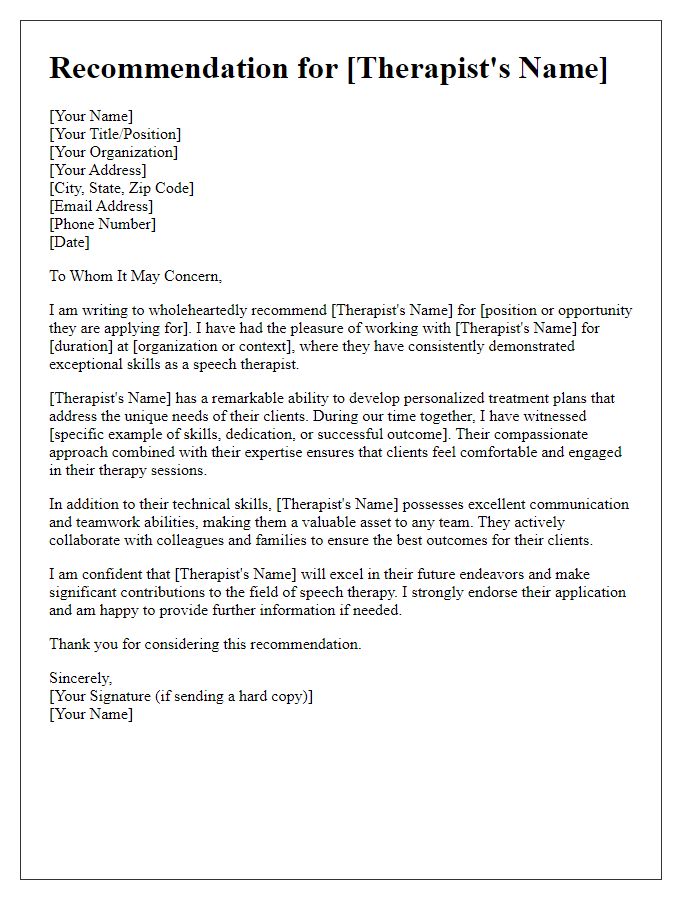
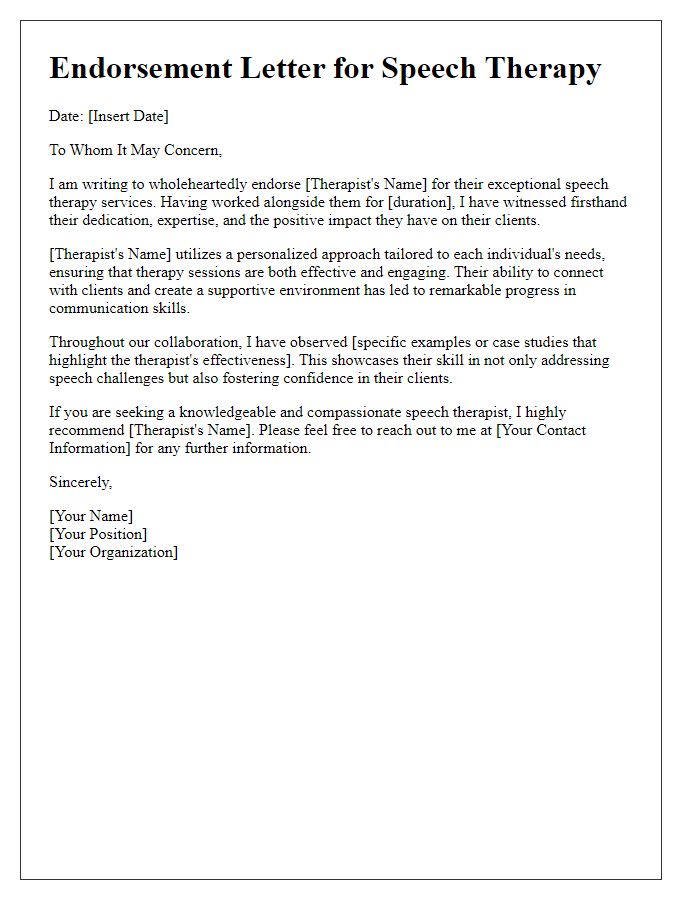
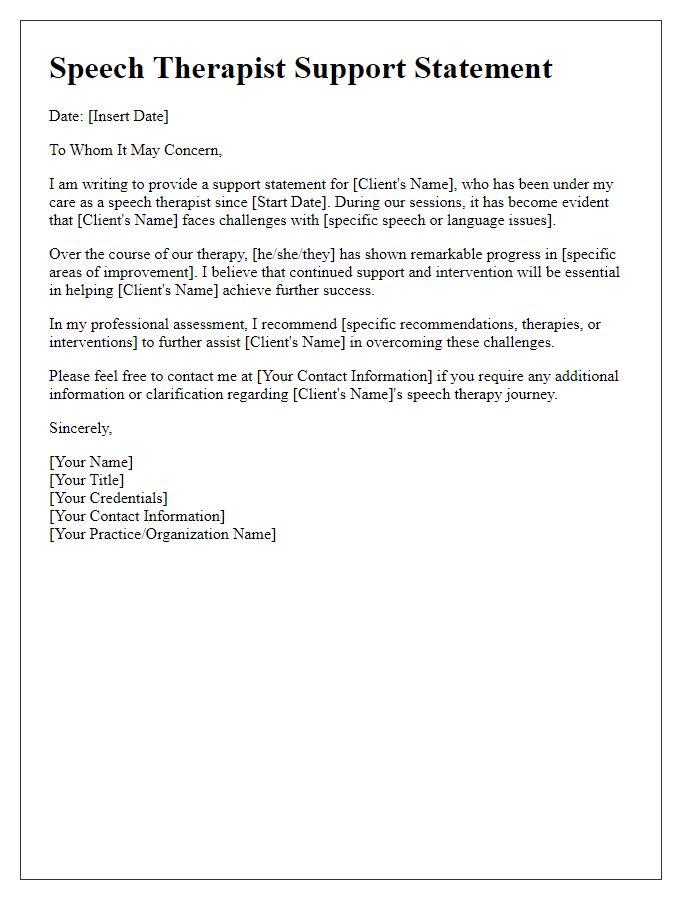
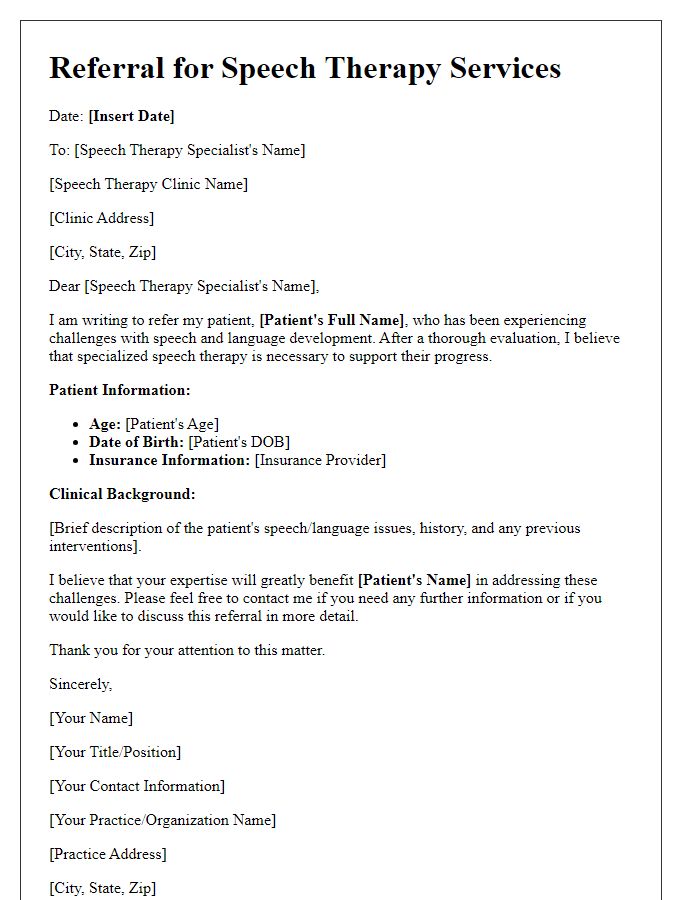
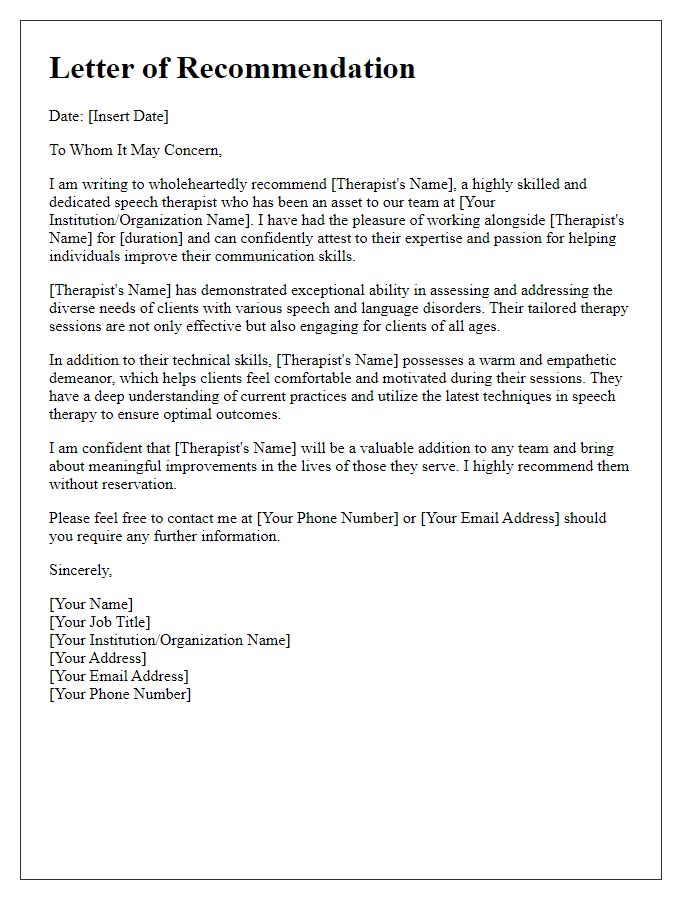
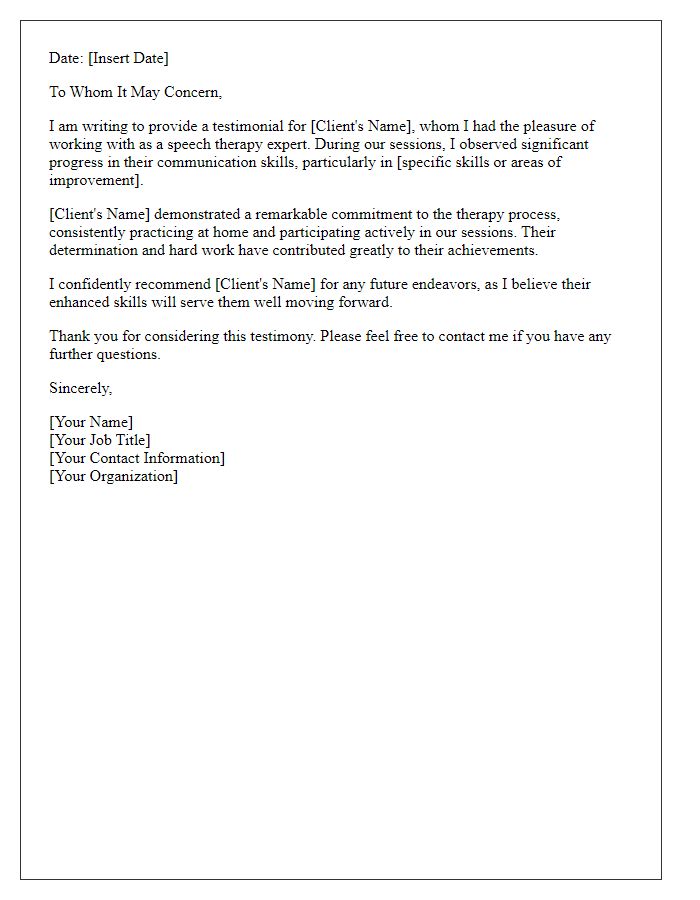
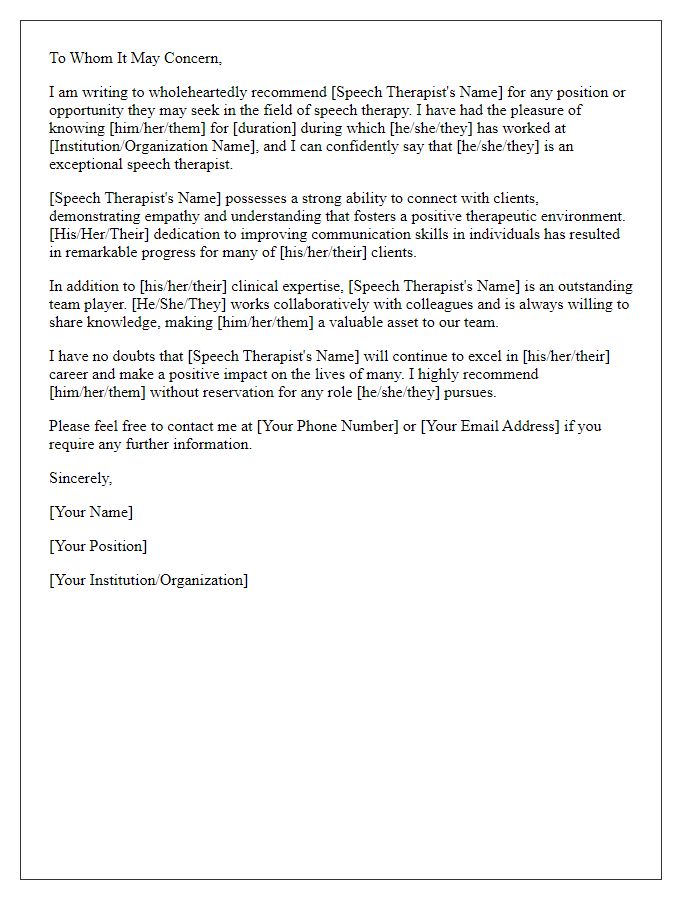
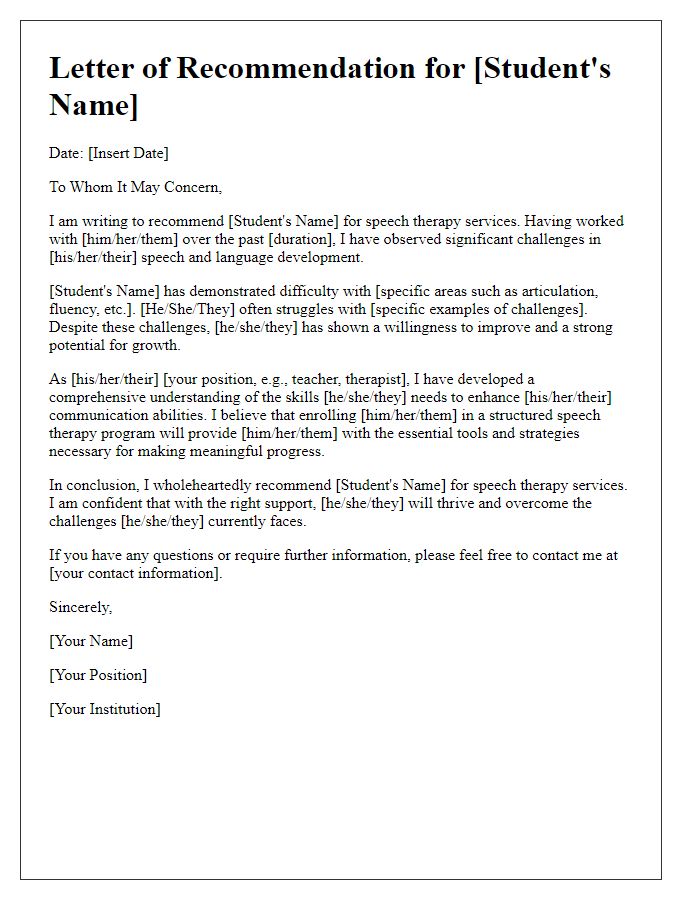
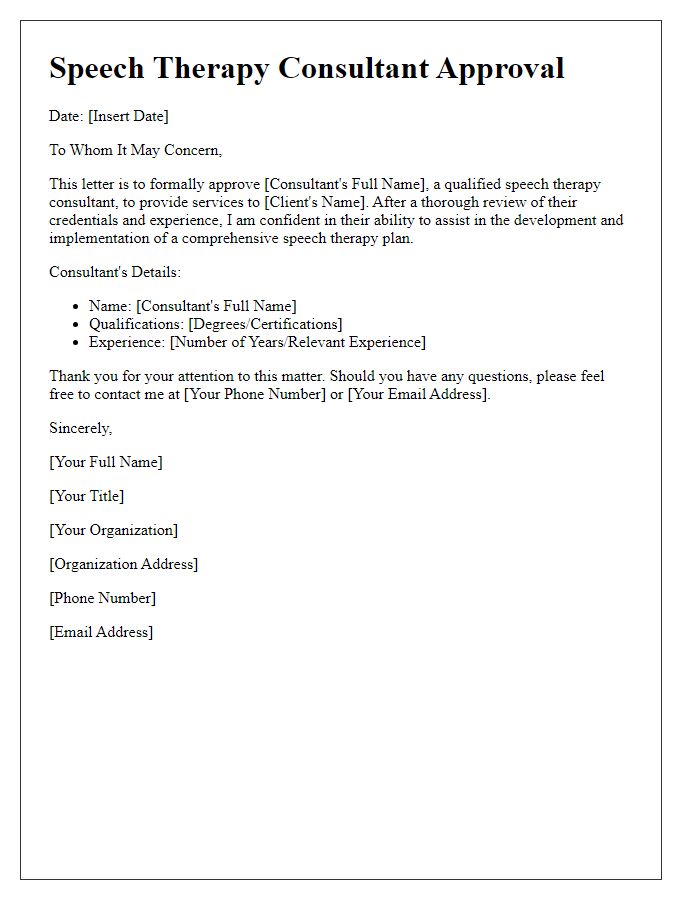
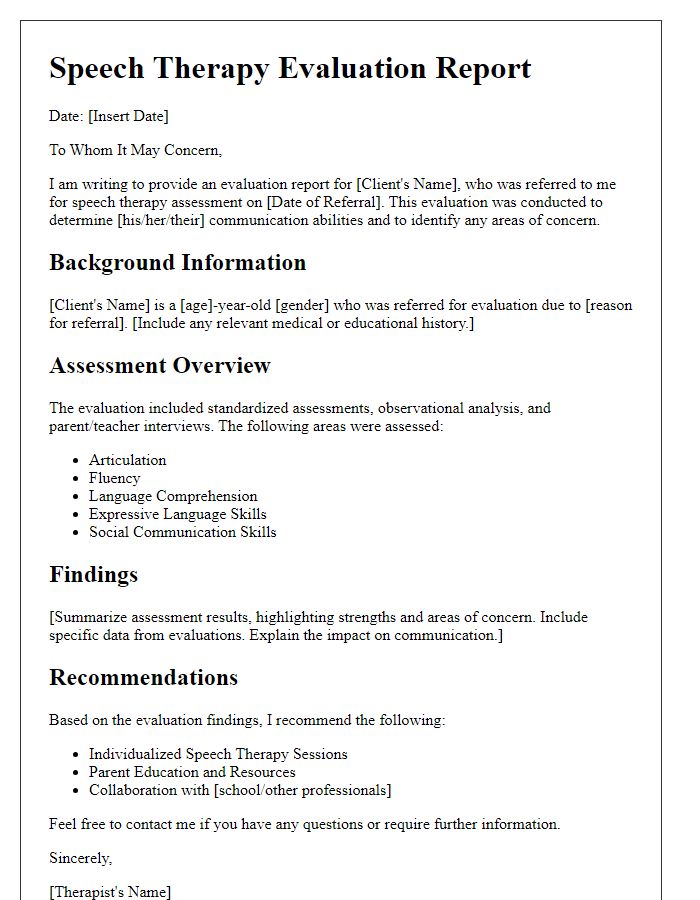


Comments